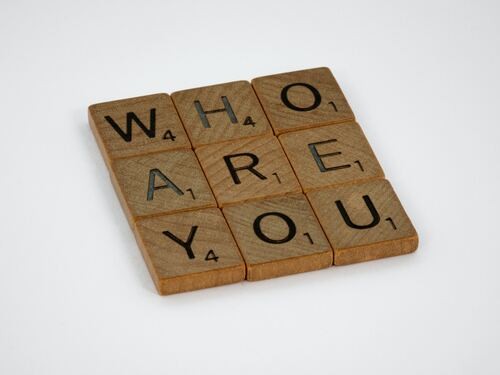Transforming Through Tears: Understanding Grief's Impact on Personal Identity

Grief has an uncanny ability to seep into every aspect of our lives, transforming us in ways both visible and invisible. It can leave its fingerprints on our thoughts, our behaviors, our relationships, and even our very sense of who we are. This blog post aims to explore the profound impact of grief on personal identity and to offer some insights into navigating this challenging terrain.
Grief often triggers a period of self-reflection, forcing us to confront our vulnerabilities and innermost feelings. This can lead to shifts in our self-perception and identity. For example, you might start identifying yourself in relation to your loss: "I am a widow," "I am an orphan," "I am a bereaved parent." While these labels bear witness to your pain, they can also limit your understanding of yourself and potentially overshadow other aspects of your identity.
Take the example of Laura, a 35-year-old woman who lost her husband to a sudden illness. She began to perceive herself solely as a widow, forgetting that she was also a talented artist, a loving mother, a dedicated community volunteer, and so much more. This one-dimensional view of her identity made her feel defined by her loss, amplifying her grief.
Or consider Tom, a 50-year-old man who lost his adult son in a tragic accident. He began to identify as a bereaved parent, which significantly impacted his relationships with his other children. His identity became so intertwined with his grief that it strained his capacity to engage with his family as he did before his loss.
These shifts in identity are a normal part of the grieving process. They reflect the significant impact of our loss and the deep love we had for the person we lost. However, while it's essential to honor these feelings, it's equally important to remember that our identity is multifaceted and not defined solely by our loss.
Understanding this can create space for healing and acceptance. Exploring your identity beyond your grief doesn't mean forgetting your loved one or minimizing your pain. Instead, it allows you to reconnect with the many aspects of who you are and reaffirm your worth beyond your loss.
If you find yourself grappling with shifts in your identity after a loss, here are a few strategies that might help:
Remember, grief isn't a linear journey, and neither is the exploration of your identity amidst your loss. It's a complex process that unfolds in its own time. You might feel lost at times, but hold on to the assurance that with each day, you are growing, healing, and finding your way.
As we end, let us remind ourselves of an old Japanese proverb, "The bamboo that bends is stronger than the oak that resists." Grief may bend us, but in our flexibility and resilience, we find our strength. Amidst the tears, the pain, and the shifting sands of identity, we emerge stronger, braver, and more compassionate. We find that, even in our loss, we are so much more than our grief. We are survivors, we are warriors of the heart, and we carry within us a light that no shadow can dim.
Grief often triggers a period of self-reflection, forcing us to confront our vulnerabilities and innermost feelings. This can lead to shifts in our self-perception and identity. For example, you might start identifying yourself in relation to your loss: "I am a widow," "I am an orphan," "I am a bereaved parent." While these labels bear witness to your pain, they can also limit your understanding of yourself and potentially overshadow other aspects of your identity.
Take the example of Laura, a 35-year-old woman who lost her husband to a sudden illness. She began to perceive herself solely as a widow, forgetting that she was also a talented artist, a loving mother, a dedicated community volunteer, and so much more. This one-dimensional view of her identity made her feel defined by her loss, amplifying her grief.
Or consider Tom, a 50-year-old man who lost his adult son in a tragic accident. He began to identify as a bereaved parent, which significantly impacted his relationships with his other children. His identity became so intertwined with his grief that it strained his capacity to engage with his family as he did before his loss.
These shifts in identity are a normal part of the grieving process. They reflect the significant impact of our loss and the deep love we had for the person we lost. However, while it's essential to honor these feelings, it's equally important to remember that our identity is multifaceted and not defined solely by our loss.
Understanding this can create space for healing and acceptance. Exploring your identity beyond your grief doesn't mean forgetting your loved one or minimizing your pain. Instead, it allows you to reconnect with the many aspects of who you are and reaffirm your worth beyond your loss.
If you find yourself grappling with shifts in your identity after a loss, here are a few strategies that might help:
- Reflect on your values and passions: What did you love doing before your loss? What values are most important to you? Reconnecting with these can help you see beyond the lens of your grief.
- Engage in meaningful activities: Pursue hobbies, volunteer work, or other activities that give you a sense of purpose and joy.
- Seek support: Share your feelings with trusted friends, family members, or a grief counselor. They can provide a different perspective and reaffirm your worth beyond your loss.
- Be patient with yourself: Changes in identity aren't always negative, and they don't have to be permanent. It's okay to identify with your loss while also exploring other facets of who you are.
- Find strength in faith: For many, faith offers a steady source of comfort and identity, reminding us of a higher purpose and a hope that transcends our earthly pain.
Remember, grief isn't a linear journey, and neither is the exploration of your identity amidst your loss. It's a complex process that unfolds in its own time. You might feel lost at times, but hold on to the assurance that with each day, you are growing, healing, and finding your way.
As we end, let us remind ourselves of an old Japanese proverb, "The bamboo that bends is stronger than the oak that resists." Grief may bend us, but in our flexibility and resilience, we find our strength. Amidst the tears, the pain, and the shifting sands of identity, we emerge stronger, braver, and more compassionate. We find that, even in our loss, we are so much more than our grief. We are survivors, we are warriors of the heart, and we carry within us a light that no shadow can dim.
Recent
Archive
2024
2023
2020
2019
November
From Speed to Solace: A Journey of Faith911 OperatorLarry the Cable GuyTwo DreamsEllie's T-Ball CoachGrief the UnspokenAmazing GraceHeaven Just Got BetterTo-Do ListEllie's Last Sticky NoteThe Baseball InstructorMalaikye's Legacy Lives On!Hope After SuicideLydia's LoveLessons From TragedyBack to Happy!Faith, Hope, and Love!!!A Father's Broken HeartRachel, You're My Hero!Remembering Henry's LaughLove Never FailsElla's LightPromise and Beauty in the DarknessHope After
December
2018
2016
2015
December
